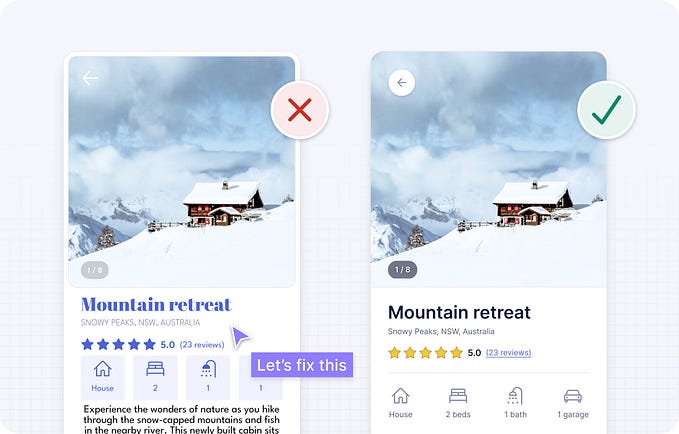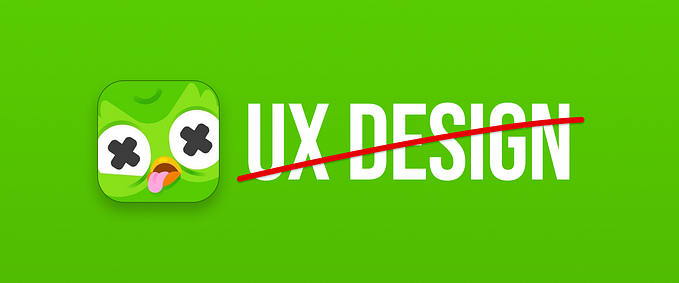Why does my UX manager not give me recognition for my work?
An overview of design manager traits and how it impacts your job

Your poor spouse, lover, or flatmate! How often do they have to endure your venting sessions? Those moments at the dinner table, after a long day in the office or on Zoom.
Your boss is such an idiot!
At least that’s what you try to tell your human punchbag.
It’s normal. The common wisdom is that more people leave their companies because of their boss than because of the company or the product. Which is debatable. But for one, we are certain that the world is full of incompetent managers. People are often promoted for their technical acumen. Not for their managerial skills.
They might have done amazing design work, but that doesn’t mean they are great leaders.
What causes their behaviour? Let’s explore a few leadership dimensions.
Loyalty with company vs loyalty with team
Let’s start with the obvious one. You and your company have different interests. You want to learn, improve your portfolio, create meaningful work, have fun, etc.
On the other hand, your company wants you to deliver as much as possible, for as little cost as possible. They want you to follow their rules, not complain, and be an example for your colleagues.
Your manager naturally prefers to defend either you or the company. Obviously, this is not an either/or. Your boss’s leadership style falls somewhere on the spectrum between fully defending you and being fully loyal to the company.
Being loyal to the company
Company loyalists are either obsessed with their careers or are just very insecure. Or both.
They believe strictly applying company policies is the right thing to do. Rules create clarity. This means your manager can use rules as an excuse for not making any decisions independently.
“Management has decided that…” is something they’d like to give as a reason, without explaining its rationale.
They manage process compliance more than they manage people.
What they fail to see is that processes are open for interpretation. In ‘the real world’, judges exist because applying rules to the letter is impossible. If life were that easy, If/Else programming, AI, or some flowchart would be enough to make decisions.
Take the often debated telework policies as an example.
A fair few companies have a telework allowance. You might be able to work 1 to 4 days a week from home. Let’s say you are entitled to 2 days, but one of your grandparents, who lives far away, is terminally ill.
Is your manager going to be compassionate? Are you allowed to work fully remotely for a few weeks and have the last moments with your family together? Or is the 2 days per week telework rule undebatable?
Rules are rules, right?
Any manager with a healthy dose of empathy would ignore them.
Rules are guidelines, more than strict orders. That’s why the world needs judges. Judges judge, or arbitrate, based on the context of the event. With the law in mind.
How much your manager is willing to wiggle depends on his or her maturity and motivation to defend your unique situation.
Company loyalists want you to follow the company’s rules. But what about product directions? Who sets them? And who follows?
Company loyalists often follow the decisions of their ‘superiors’. They, therefore, expect you to do the same. You should design whatever your product manager wants.
Just obeying instructions reduces your role as UX designer to that of an order-taking pixel pusher.
Some people are more at ease with following orders from above than others. Obeying can be part of your personality. But it can also be culturally dependent. In high power distance cultures, it’s much more normal to obey without questioning than in cultures with low power distance.
I wrote extensively in my article:
Being loyal to the team
We’ll find a more rebellious type of leader on the other side of the spectrum — managers who will defend you, sometimes at all costs.
Team defenders are much more comfortable with ignoring company-wide rules. They first think about what’s best for you. Afterwards, they search if there are any policies that might support your desires. If not, they choose whether the rules are ignored in the interest of you or not. They will defend you when someone high up complains.
Company loyalists are top-down, team defenders think bottom-up.
It’s the workforce that has the knowledge. The global direction might be defined by the senior leadership, but you should make your own design decisions.
Team defenders can also be firm when it comes to demanding more budget for UX, tools, training, etc.
Being a bottom-up thinker means that senior leadership will be challenged a lot. Not all organizations are ready for this. Some C-suite managers are not used to being intellectually challenged. This can create tension between your team and the rest of the company. Your team might become known as ‘the pirate team’.
The lowest form of maturity is a dictatorship. The highest form of maturity is when everyone trusts each other. But how realistic is high maturity?
Trust is essential to bottom-up management. Everyone should take their own responsibility. That can be OK, if everyone is mature. It can become messy if some team members abuse their freedom.
It can also cause issues if your manager is replaced by someone more strict. When you and your teammates have been given much freedom, and this freedom is taken away, tension increases. It’s very hard to make you follow rules that weren’t applicable before. Your next manager might experience a ton of resistance. Just because of your old manager’s loose style.
Self-promotion vs team promotion
You just designed something amazing. But who will get the credit for this work? Is it really you? or your team? Or your supervisor?
The more toxic your environment, the less you will get the recognition you deserve.
It’s, however, not always your supervisor who’s to blame. But that doesn’t mean this boss did everything possible to give you enough credit either.
There’s certainly a cultural aspect to this behaviour. In masculine countries, competition is the standard. People are conditioned to present themselves well.
In feminine countries, humbleness is a virtue. Claiming credit is not done.
Different industries bring different cultures too. The banking industry is very masculine, whereas the healthcare world is fairly feminine.
How do (self-)promoting behaviours manifest in the relationship with your manager? And what can you do about it?

Self-promotion
The most blatant and disturbing form of self-promotion is when your manager presents your mockups, research, or other UX work as if it’s his or her own work.
More subtle ‘intellectual theft’ can appear when someone doesn’t acknowledge peers’ contributions. For instance, when you helped to solve a problem. It would be normal to say “I designed this page, but this dropdown was her idea.” This doesn’t always happen.
You should receive recognition for your work. You have the right that people know who created these designs. If this doesn’t happen, you need to solve this.
The best, and the most human, way would be to sort it out directly with your supervisor. Bring it up and discuss it. Hopefully, and normally, intentions weren’t that bad. Your supervisor was perhaps just a bit naive. Next time, you will be mentioned when your designs are presented.
If you can’t resolve it through an adult dialogue, you need to be more aggressive.
You need to watermark your work.
Make sure that your work contains elements that are clearly yours. If your mockups have dummy user data, use your own profile photo, name, etc.
When your supervisor tries to steal the show, and your work, the audience will notice your photo directly.
If you create a research report, add photos of your user tests, with you in the frame. Make sure that quotes of users sometimes mention your name specifically.
“I don’t know, Bas, should I click here?”
Anything that can point to you as the artefact’s creator makes you mark your territory.
Again, situations like this are really not great. We should behave like reasonable and intellectually advanced human beings. But when your environment is this unreasonable, you might not have any other option.
Ok, well, the other option is to leave and work for someone who truly respects you. :)
Promoting others
You’ll find a healthier environment when your supervisor gives you the spotlight. You might be able to present your work yourself, but if not, your name is mentioned wherever possible.
This often leads to you getting compliments from people who work far away from your team. For instance, from the CEO, head of product, or just someone in a completely different unit. Your work will be visible to anyone.
This is something that motivates.
An issue can appear when the organization is not mature enough for spotlight sharing.
I had cases where I gave the floor to less senior designers to present our collective work. I thought it would be a good opportunity for them to establish themselves as UX specialists. They could also acquire expertise in stakeholder management.
My generosity, or perhaps ignorance, backfired. The room of people felt undervalued because they weren’t addressed by someone of ‘similar significance’.
How could a colleague with a lower rank share a design strategy with the elite? Peasants should follow, not lead!
I know, it’s extremely sad. But it’s the reality in which we sometimes operate. I should have assessed the situation better.
What we can ultimately take from this is that claiming or giving credit can require some calibration. More credit doesn’t always mean a better result.
Combining the dimensions
Let’s now combine the two dimensions.
On the vertical axis, we can show if your manager’s loyalty lies with the company or with you.
The horizontal axis defines whether someone is taking credit for your work, or is giving you a chance to shine.

This will obviously create 4 segments. I gave them arbitrary names to summarise their main instincts.
The career chaser
Loyal to management’s rules, and claiming credit for your work. Typical behaviour for political tigers.
It’s not a surprise that many people in top management and politics have these traits. They are willing to throw others under the bus to advance their own careers.
They claim credit for your designs. Well, unless usability tests prove the designs were bad. In that case, they quickly point out that you have been behind the designs. Not them.
In healthy companies, these types are not rewarded for their behaviour, but a fair few companies are not that healthy.
How to work with a career chaser?
Career chasers can see life as a competition. You can join them in this arm wrestling contest. But I won’t suggest this.
Let them be the alpha baboon on top of the rock. What do you care?
Play their game. Stay calm. Comply. Stay away from them as much as possible.
See this time as a transitional period of your career. You need to wait to get another supervisor. Or, perhaps, see if there are any options to change teams. Any organization is different, so there’s no single recipe to deal with such a complex problem.
Luckily, most UX people aren’t career chasers. However, you might have a manager that is not a UX person.
If your manager is a career chaser… good luck.
The conflict avoider
Managers who give you credit for your work but also serve the company to the letter are risk averse.
They want to keep everyone their friend but are unwilling to fight for them. Conflict avoiders are usually nice people but won’t achieve big results.
The status quo is good enough.
If this is your manager and you want to see something changed, you must do it yourself. If your UX writing practice is undervalued and you need more budget… fight for it.
Leadership is not assigned, it’s taken. You can become a leader without having a management role. Anyone can influence anyone.
Be aware. If you decide to start influencing, you could upset your supervisor. He or she might feel uncomfortable with you, bypassing him or her, and challenging top management.
If you succeed, you will improve your company. If you fail, you know that your company probably doesn’t want to improve. It’s usually internal politics that prevent an organization from growing.
The self-manifesting rebel
It might be hard to find many people that are bottom-up thinkers who claim credit for other people’s work.
These are usually the sport coach types. They want the team to succeed, but when successes are achieved, they can’t help but absorb all the fame.
Often, there are no bad intentions behind this. But you might need to correct these managers’ behaviours. Speak about how you perceive their actions and how they can be solved.
And if it doesn’t help, you now know how to watermark your work.
The grassroots ambassador
If you work with a manager that always gives you credit and is willing to defend the interest of your team against company policies, you have a great foundation for a nice working environment.
However, your manager can be so accommodating that he or she might forget to defend himself or herself.
You will get compliments for your work, but you might need to ensure your manager will get a fair share of rewards too.
If you sense that this doesn’t happen, go to your manager’s manager to express your gratitude. It’s a small gesture that can have a big impact.
Your manager needs your support. Compromising yourself for other people’s chances is generous, but it comes at a price. Usually a mental one.
Many UX people fall into this category, and it’s no real surprise that many UX managers will burn out.
Your manager should take care of you, but you should also take care of your manager.
Well, unless your manager is a career chaser. They will take care of themselves more than enough.
Control your career
Although I try to be neutral, writing this article unbiasedly is impossible. Everything that we’ve experienced in the past, forms the person we are today.
This article is not meant to give a scientific overview of management roles. Instead, I hope that you will get a bit of an understanding of where your boss’ behaviour can come from.
Give people the benefit of the doubt. Their behaviour is often not intrinsic, but the result of their environment. People can do crazy things to protect themselves.
Remind yourself that you are in control of your own career. Don’t let your manager limit your progress. You can be loyal to your company, but do you get back what you give? Does reciprocity exist in business? Only sometimes.
Don’t compromise on your values.
Make sure you work in a healthy environment. Otherwise, you might lose your spouse, lover, or flatmate, because of all of your dinner venting sessions.
Your job is not worth your relationships.
Thank you for reaching the end
My content is open to everyone, so no “members only”
I hope the article was meaningful to you
Please consider following me as a token of gratitude and approval








